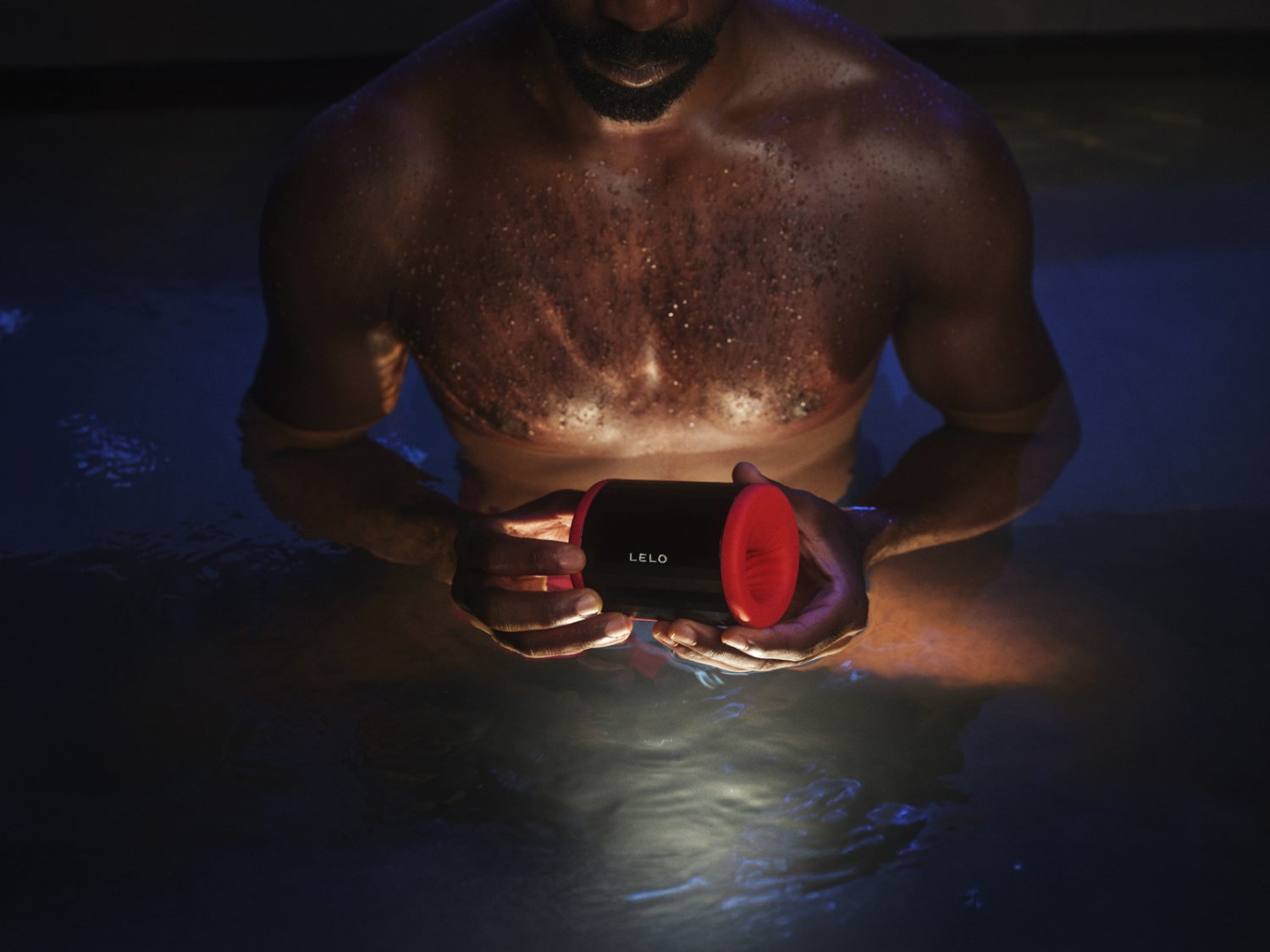For as long as I can remember, sleeping apart from your partner – known as a “sleep divorce” – has had a negative connotation. Like the couple might be growing apart, or that they’ve given up on nighttime sex and intimacy. We all have a picture in our heads of what a healthy couple looks like, and it probably includes them sharing a bed each night.
But I don’t think that’s true, actually – that sleeping apart signals relationship (or sex) doom. At least it doesn’t capture the reality of all couples. I know people who happily live this way. The Better Sleep Council* reports that 1 in 5 couples sleep separately most or all of the time, so I’d love to explore this topic from a different angle:
Are there relationship benefits to sleeping apart?
Can a couple’s sex life improve by sleeping in separate rooms?
Spoiler: if it means that each person gets better sleep that way, the answer to both questions might be “yes.”
Bad sleep, bad sex
Sleep is the bedrock of mental health, but it’s also the bedrock of relationship health. When we don’t get enough sleep, we:
- Experience more relationship conflict
- Have more erectile dysfunction and lower libido
- Can’t get sexually aroused as easily
I could go on, but you get the point: bad sleep is poisonous to any relationship – and to your sex life.
And yet…tons of us sleep in the same bed, despite legitimate sleep disruptors. For example:
- One partner snores or uses a CPAP machine, which keeps the other partner up at night
- One or both of you is on baby duty for the night, getting up frequently to soothe an infant
- One partner works the nightshift, waking up the other partner when they come home
- One partner needs to sprawl out in bed, waking up the other partner with their movements
- One partner likes to fall asleep with the TV on, while the other craves silence and darkness
- Restless legs or frequent trips to the bathroom keep one or both of you tossing and turning
- Stress and anxiety cause one partner to stay up thinking while the other is fast asleep
- Different sleep schedules, like one partner being a night owl and the other an early riser, disrupt the other’s sleep
- Pets or children in the bed that take up space or wake you up during the night
No one is to blame in any of these scenarios: these are all basic life realities. But if you can relate (or have constant sleep differences in your relationship), it might be time to take this issue more seriously.
Sleeping apart: the pros for your sex & relationship
If sleeping apart means your sleep quality improves, several magical things happen:
First, your sex drive might bounce back. A recent study* shows massive correlation between sleep health and sexual function, but there are tons of studies just like it to back that up.
Second, you’re going to be a better communicator. Maybe that’s why a fifth of couples sleep separately: their day-to-day interactions are just more pleasant that way.
Third, you’re going to be in a better mood, with less anxiety and depression. And when you’re less agitated, you’ve got more patience and warmth for your partner.
The bottom line is: when your sleep improves, YOU improve. If prioritizing a full, restful night’s sleep means you wake up with more energy, balanced hormone levels and neurotransmitters, and more excitement for your partner, I can practically guarantee that your sex life will reflect that. It’s much easier to get turned on, get an erection, and feel sexual when you’re well-rested.
But devil’s advocate – if you slept apart, could that disrupt your relationship and sex in other ways?
Sleeping apart: the cons for your sex & relationship
As I look at the research, the top two sex and relationship cons for this arrangement seem to be:
Feeling lonely. If the closeness isn’t there in a relationship, sleeping apart could exacerbate the problem. You might sleep better, but if you aren’t intentional about feeding closeness in other ways and ritualizing time together, a roommate vibe could set in.
If sleeping apart improves your sleep health but makes one or both of you feel lonely at night, try creating intentional time together. This could look like walks together after dinner, taking turns planning weekly dates, or even sex-driven activities like doing my Yes No Maybe List. When you remove physical closeness in one area of life, you can restore it in other areas.
Feeling resentful. If you’re on the receiving end of a partner declaring, “I’m sleeping in a separate room from now on,” you might feel like this situation was forced upon you – and that’s a recipe for resentment.
To me, this is a communication issue. How can both partners speak more kindly to each other, so that you’re working to solve a problem – not punish one another?
Here’s a gentler version of this conversation, from the partner who’s experiencing more sleep difficulty: “Hey, my sleep is really suffering right now. I want to have more energy with you, and I also want to have better sex with you. Can we experiment with different ideas to get my sleep back on-track?”
How to get better sleep, for better sex
Aside from the potential cons, let’s be real for a second. Financially, it doesn’t work for a lot of us to carve out a whole separate room to sleep in. In a way, the “being together, sleeping apart” trend is predicated on the assumption that you’ve got the home, resources, and extra room to pull this off. That’s just not true for lots of people.
So whether or not you decide to sleep apart, what are some things you can do right now to improve your sleep – and get the benefits of better sex?
Take a sleep supplement. Not EVERY solution for better sex has to come down to a product…for real. But sometimes, getting just one good night’s sleep can clear your head enough to tackle the problem more holistically.
My personal favorite – VIIA – has a sleep line that includes both THC and THC-free options, to help you finally, finally get some rest. If cannabis isn’t your thing, try popping the Zen CBD Sleep Gummies about 30 minutes before bed for a good night sleep without the grogginess in the AM.
Masturbate. You knew I was going to recommend this! Orgasms prompt the release of oxytocin and prolactin, two neurotransmitters that help you drop off to sleep. At the same time, cortisol production decreases following orgasm, so that you stay asleep. I’ve got an oral sex-esque stroker for those with a penis that I’m pretty excited about, and a super popular wand that’s on-sale right now in my shop – check out the rave reviews.
Test your hormone levels. Hormone levels fluctuate with age, and that’s especially true for women in perimenopause and menopause. Progesterone is the hormone that helps induce good sleep, and when that gets thrown off, insomnia is much more common.
Get your hormone levels checked, and if they’re in a time of fluctuation, talk to your doctor about solutions that help restore a) your hormone levels or b) your sleep quality.
Watch your caffeine. Especially if you consume it after 5pm. The same goes for alcohol: while it can induce sleep initially, it acts as a stimulant a few hours after you consume it.
Here are 12 more lifestyle tips from the Harvard Division of Sleep Medicine on improving sleep. Screenshot these!
I’d love to hear from you on this. How does sleep affect your sex life? Have you ever tried sleeping apart to improve your sleep – and by extension, your sex and relationship?
One more thing: if this is the kind of topic where you crave real talk from other humans, consider joining my new community app, SmartSX. It’s a place where you can explore personal topics exactly like this one and hear from other community members who’ve been through it. Plus live workshops and AMA’s! Safe space, great vibes, sex-curious people who want to become better lovers, with better sex. Get on the email list here and be the first to know when it drops.
Want more? Sign up for my newsletter and get sex secrets on the regular.
*https://bettersleep.org/research/survey-american-couples-have-trouble-in-bed/
- Experience more relationship conflict
- Have more erectile dysfunction and lower libido
- Can’t get sexually aroused as easily











